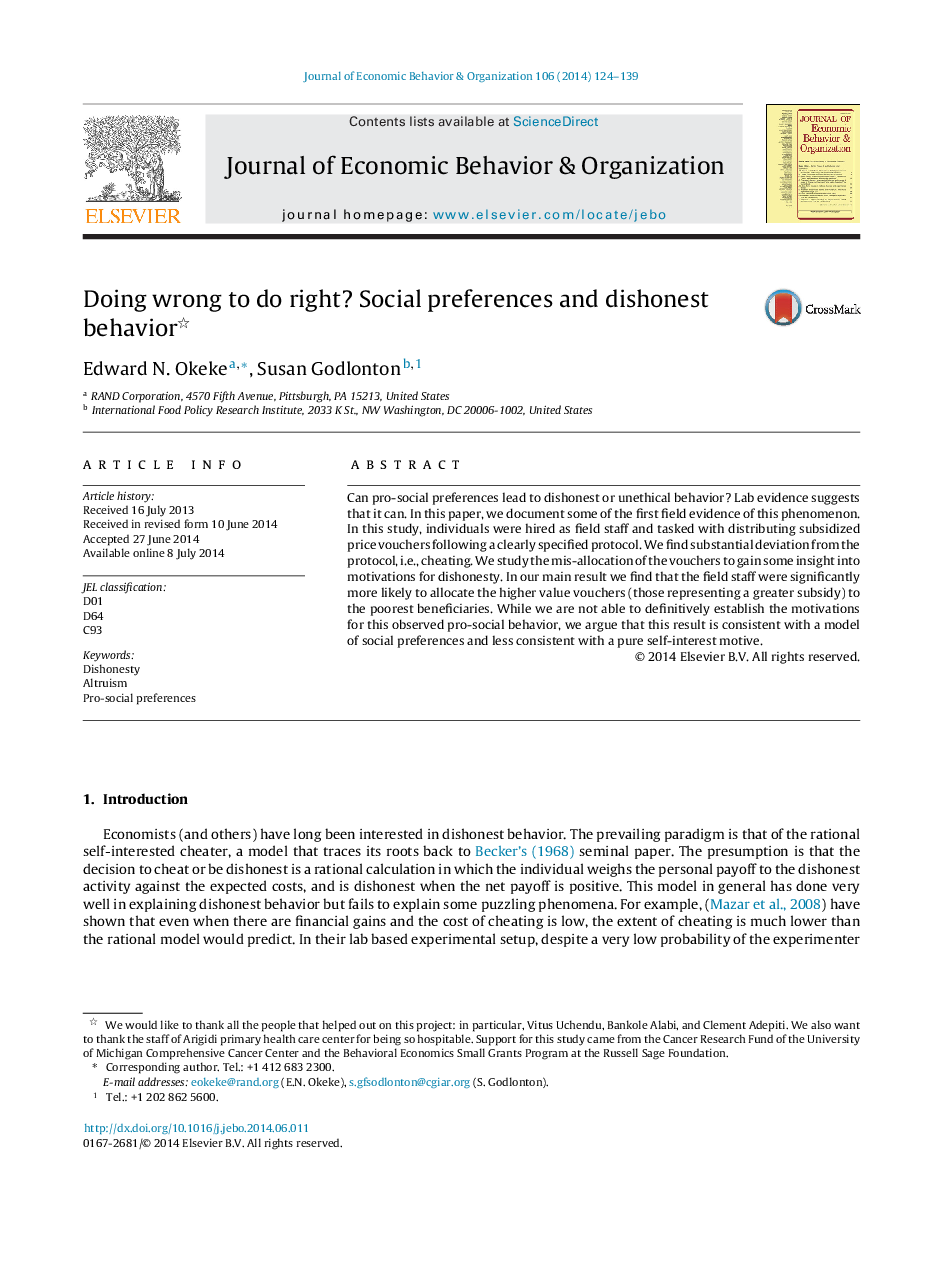| Article ID | Journal | Published Year | Pages | File Type |
|---|---|---|---|---|
| 7243462 | Journal of Economic Behavior & Organization | 2014 | 16 Pages |
Abstract
Can pro-social preferences lead to dishonest or unethical behavior? Lab evidence suggests that it can. In this paper, we document some of the first field evidence of this phenomenon. In this study, individuals were hired as field staff and tasked with distributing subsidized price vouchers following a clearly specified protocol. We find substantial deviation from the protocol, i.e., cheating. We study the mis-allocation of the vouchers to gain some insight into motivations for dishonesty. In our main result we find that the field staff were significantly more likely to allocate the higher value vouchers (those representing a greater subsidy) to the poorest beneficiaries. While we are not able to definitively establish the motivations for this observed pro-social behavior, we argue that this result is consistent with a model of social preferences and less consistent with a pure self-interest motive.
Keywords
Related Topics
Social Sciences and Humanities
Economics, Econometrics and Finance
Economics and Econometrics
Authors
Edward N. Okeke, Susan Godlonton,
